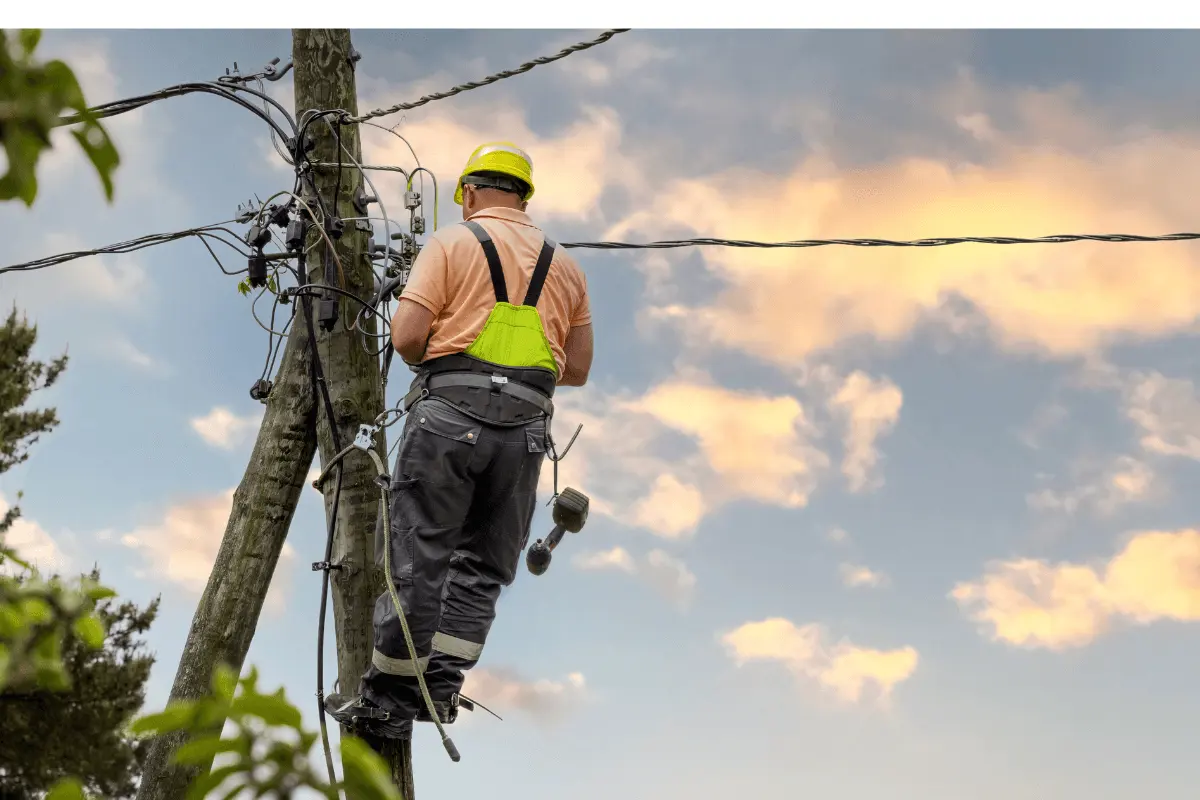# Introduction
Curious about lineman salary Texas? You’re not alone. This is a hot topic for anyone considering a career in electrical utilities or looking to relocate for better pay. But what exactly drives the salaries for linemen in the Lone Star State? In this guide, we break down real numbers, benefits, and career pathways—plus some little-known facts that even seasoned pros might not know. Buckle up for a deep dive into the world of Texas lineman wages.
# What Determines Lineman Salary in Texas?
First off, it’s not just about the wires. Lineman salary Texas is influenced by experience, employer type, union status, and geographic location. For instance, major cities like Houston and Dallas often offer higher pay than rural towns.
According to the U.S. Bureau of Labor Statistics, the average annual wage for electrical power-line installers and repairers in Texas was $63,370 in 2023. However, top earners can take home $90,000 or more, while entry-level apprentices might start around $46,000 (来源: [BLS.GOV](https://www.bls.gov/oea)). Experience boosts your paycheck, but so do extra skills, certifications, and sometimes—willingness to travel.
# LSI Keywords and Career Opportunities
Let’s connect the dots. If you’re searching for lineman salary Texas, you might also be interested in these LSI keywords:
1. Journeyman lineman Texas wages
2. Power company jobs in Texas
3. Union vs non-union lineman pay
5. Transmission vs distribution lineman salaries
Knowing these terms helps you widen your search, compare options, and plan your career path more strategically.
# Job Responsibilities and How They Affect Pay
So, what does a lineman in Texas actually do? Beyond climbing poles and fixing lines, responsibilities include:
– Installing, maintaining, and repairing high-voltage systems
– Troubleshooting outages during storms
– Keeping compliance with safety codes
– Working overtime or on-call shifts
But here’s the kicker: transmission linemen (those working on massive lines between power stations) typically earn more than distribution linemen (who focus on local neighborhoods). That’s mainly due to increased risk, technical skill needs, and travel requirements.
| Job Type | Average Annual Salary (TX) | Training Required | Union Influence |
|---|---|---|---|
| Transmission Lineman | $73,000 | Advanced Certifications | Strong |
| Distribution Lineman | $60,000 | Basic Apprenticeship | Moderate |
(数据源: PayScale, 2024)
# Real Benefits and Perks—More Than Just Salary
Now, salary is important, but let’s talk perks. Many Texas linemen receive:
– Overtime pay (sometimes double time during emergencies)
– Health and dental insurance
– Retirement and pension plans
– Paid training and certification upgrades
– Travel stipends for remote assignments
According to my experience working with several Texas utility companies, these benefits can be worth an additional $10,000-$15,000 per year. So, don’t just look at the base salary when making your decision!
# Step-by-Step Guide: How to Become a Lineman in Texas
Ready to start your journey? Here’s your actionable plan:
1. Finish high school—focus on math and physics.
2. Apply for a lineman apprenticeship with a local utility or trade school.
3. Complete classroom training (usually 1-2 years, including safety and technical skills).
4. Accumulate 7,000+ hours of supervised, hands-on fieldwork.
5. Pass state certifications and get hired, either by a union or non-union employer.
# Location Matters: Texas Cities With Highest Lineman Salaries
Not all Texas cities pay the same. Here’s a look at real differences:
– Houston: Lineman salary Texas average is $68,000—thanks to big infrastructure and union density.
– Dallas: Similar numbers, with room for overtime during storms.
– Austin and San Antonio: Slightly lower, typically $60,000-$64,000 due to fewer power companies.
Living costs also vary, so factor in housing, transportation, and taxes. Sometimes, rural jobs offer free housing during major outage repair periods—a hidden perk!
# Common Mistakes and Misconceptions
Let’s clear up a few things before you jump in:
ATTENTION: Assuming all lineman jobs pay equally is a mistake. Seniority, specialty, and even which utility you choose affect outcomes.
ATTENTION: Don’t skip formal training or try shortcuts—the industry is strict about safety and certification. Quick hires usually mean lower pay.
ATTENTION: Thinking union jobs always pay more isn’t true. Some non-union employers offer better overtime, bonuses, or travel benefits.
# Trending Data and Future Outlook
Here’s something surprising: Texas is forecasted to grow its electrical utility workforce by 6% between 2024 and 2028, outpacing national trends (来源: [Texas Workforce Commission](https://twc.texas.gov)). This means stable, well-paid work ahead—especially as grid modernization rolls out.
Demand for specialized transmission linemen will rise as energy infrastructure expands. Upskilling, especially in new technologies (smart grids, solar tie-ins), can help you unlock top lineman salary Texas levels faster.
# Expert Tips: How We Advise New Linemen
Based on my experience mentoring apprentices, we recommend shadowing veteran linemen, joining professional groups, and seeking overtime for skill-building. Also, review union contracts carefully—they differ between companies and regions.
# Lineman Salary Texas Checklist
Ready to take action? Here’s your checklist for maximizing lineman salary Texas:
– Confirm your preferred location and industry segment.
– Research top-paying utilities and union vs non-union details.
– Complete apprenticeship requirements and pursue advanced certifications.
– Negotiate pay, overtime, and travel stipends before signing.
– Track benefit packages—total compensation beats base salary alone.
– Stay updated on industry trends (smart tech means higher rates).
– Review and compare contracts before accepting any offer.
# Conclusion
Texas linemen can count on competitive salaries, great perks, and steady career growth—but success requires smart planning and ongoing development. Now you know what lineman salary Texas really means and how to achieve your goals. Good luck out there, and stay safe on the lines!



















